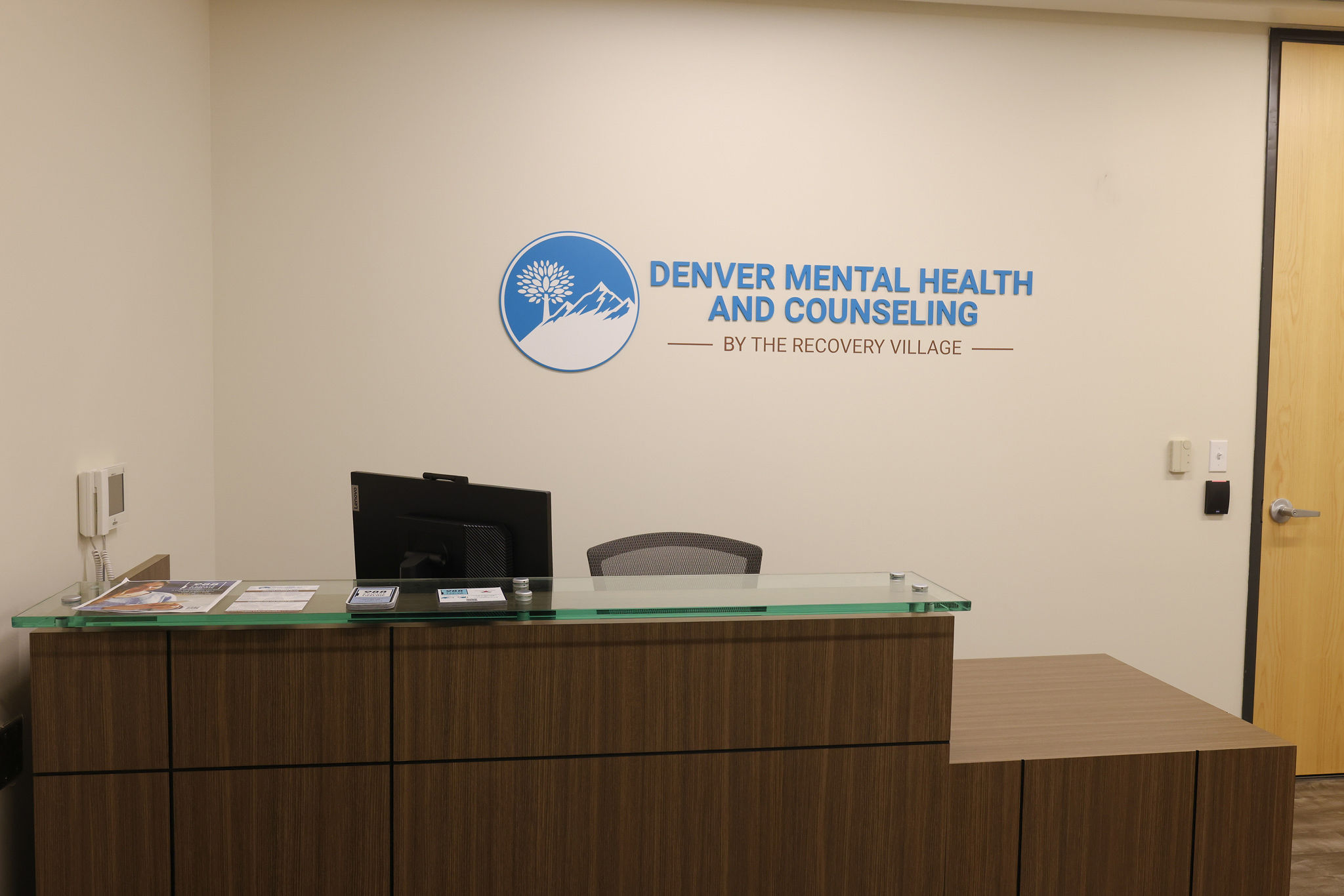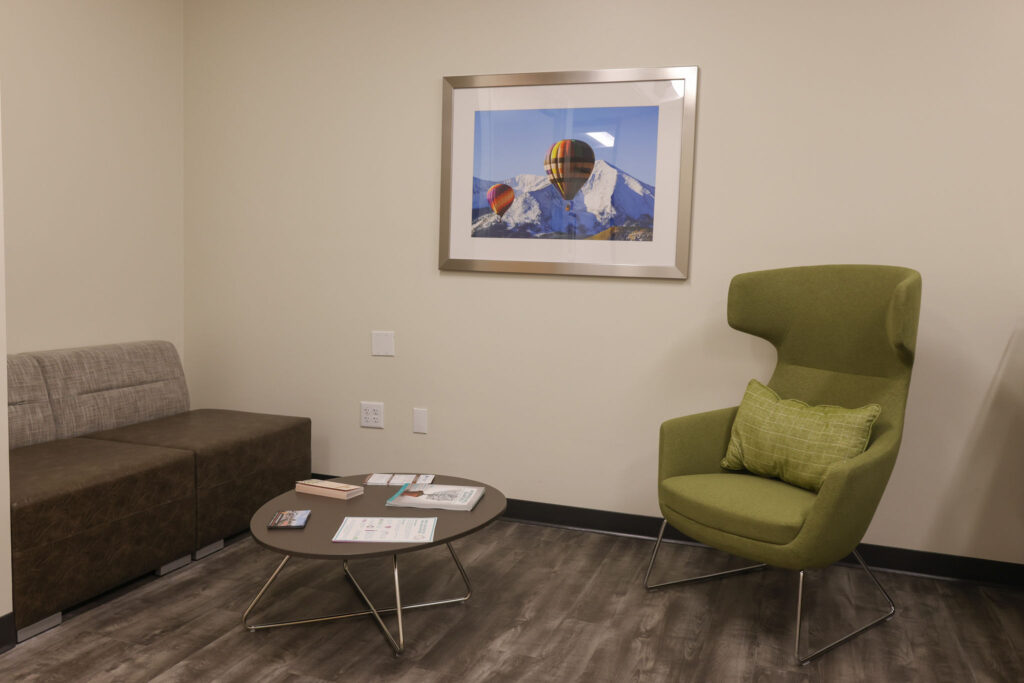Recovery is just a phone call away. We’re here for you 24 hours a day, 7 days a week. Call (352) 771-2700
Act Fast – Limited Capacity
Denver Mental Health and Counseling by The Recovery Village offers outpatient programs that treat addiction and mental health conditions in a compassionate environment.


Throughout the COVID-19 pandemic, the United States has experienced increased rates of substance use and drug overdose. In Colorado alone, overdose death rates rose from 16.8 per 100,000 in 2015 to 26 per 100,000 in 2020. Opioid use was responsible for 65.3% of these deaths in 2020.
Denver Mental Health and Counseling by the Recovery Village works to end this upward trend by providing evidence-based treatment programs for substance use and mental health disorders across the Greater Denver area. In all of our programs, we deliver comprehensive addiction and mental health treatment that is individualized to meet each client’s specific needs.
Our facility offers two levels of outpatient treatment, medication-assisted treatment (MAT) and individual and group therapy.
At our facility, medical professionals use clinical assessments to determine the best treatment plan for each client. These assessments examine physical and mental health as well as current and past drug use. Many substance abuse treatment plans start with a medical detox and are followed by an outpatient program. The levels of care provided by Denver Mental Health and Counseling include:
In an outpatient treatment program, patients do not live onsite at a rehab center. Rather, they attend appointments at a facility while living at home or in a sober living community. Traditional outpatient programs generally provide under nine hours of treatment per week. Treatment typically includes a combination of individual or group therapy and medical appointments. Outpatient care is best suited for people who have mild substance use concerns or have already completed higher levels of care, like an inpatient program. It is also suited for many mental health disorders where substance abuse is not present.
An intensive outpatient program (IOP) is similar to a standard outpatient program but more involved. It provides at least nine hours of care per week, and the treatment plans tend to be more structured. Patients in an IOP still return home after sessions each day.
According to the National Institute on Drug Abuse, about half of people struggling with substance abuse will also experience a mental health disorder. For this reason, Denver Mental Health and Counseling offers treatment that can address substance use and mental health disorders simultaneously. Dual diagnosis treatment typically includes behavioral therapy and medication when appropriate.
Medication-assisted treatment (MAT) combines the use of medication and counseling to treat substance use. It is approved to treat opioid and alcohol addictions, as it can help reduce withdrawal symptoms and cravings. However, MAT is not for everyone and is used only when medically appropriate.
Most outpatient rehab programs include some form of individual therapy. This approach can help patients process their emotions and learn healthy coping skills for life’s stressors. Individual therapy can also teach patients how to respond to interpersonal conflicts or events that might interfere with their recovery.
Many outpatient programs also include group therapy meetings. Group therapy offers patients social support from a group of people who understand what they’re going through. It also helps patients stay accountable for their sobriety.
In an outpatient treatment program, patients do not live onsite at a rehab center. Rather, they attend appointments at a facility while living at home or in a sober living community. Traditional outpatient programs generally provide under nine hours of treatment per week. Treatment typically includes a combination of individual or group therapy and medical appointments. Outpatient care is best suited for people who have mild substance use concerns or have already completed higher levels of care, like an inpatient program. It is also suited for many mental health disorders where substance abuse is not present.
An intensive outpatient program (IOP) is similar to a standard outpatient program but more involved. It provides at least nine hours of care per week, and the treatment plans tend to be more structured. Patients in an IOP still return home after sessions each day.
According to the National Institute on Drug Abuse, about half of people struggling with substance abuse will also experience a mental health disorder. For this reason, Denver Mental Health and Counseling offers treatment that can address substance use and mental health disorders simultaneously. Dual diagnosis treatment typically includes behavioral therapy and medication when appropriate.
Most outpatient rehab programs include some form of individual therapy. This approach can help patients process their emotions and learn healthy coping skills for life’s stressors. Individual therapy can also teach patients how to respond to interpersonal conflicts or events that might interfere with their recovery.
Many outpatient programs also include group therapy meetings. Group therapy offers patients social support from a group of people who understand what they’re going through. It also helps patients stay accountable for their sobriety.
Denver Mental Health and Counseling is in-network with most major insurance carriers including Aetna, Blue Cross Blue Shield, Cigna, Humana, and United.
If you don’t have health insurance or your coverage is limited, that shouldn’t prevent you from accessing care. Denver Mental Health and Counseling offers private pay options to accommodate your needs.
Denver Mental Health and Counseling does work with most national and local insurance providers. However, while many insurance plans offer coverage for mental health and substance abuse counseling, nearly all plans require some out-of-pocket costs. These expenses include copays, coinsurance and deductibles, which collectively are called “Patient Responsibility.” Contact your insurance provider or our helpful representatives to determine your coverage plan and learn if Denver Mental Health and Counseling is an in-network provider.
Outpatient treatment allows people to treat their mental health and substance use disorders while continuing their daily routines, such as work, school and family obligations. It gives clients more independence, as it’s less demanding and structured than inpatient programs. Outpatient programs are best suited for those who have only mild substance use and mental health concerns or have recently completed an inpatient program.
Intensive outpatient programs (IOPs) generally last for a month or longer. After completing an IOP, clients will generally transition to a traditional outpatient program, which can last for three to nine months. The National Institute on Drug Abuse recommends participating in longer treatment plans for an increased chance of long-term recovery.
A representative from our facility will speak with you to determine your treatment needs and schedule your first appointment. You can often begin treatment on the same day as your call or shortly after. When you arrive at our facility, an intake specialist will speak with you further and create a personalized treatment plan that will address your individual concerns and needs.
The Recovery Village aims to improve the quality of life for people struggling with a substance use or mental health disorder with fact-based content about the nature of behavioral health conditions, treatment options and their related outcomes. We publish material that is researched, cited, edited and reviewed by licensed medical professionals. The information we provide is not intended to be a substitute for professional medical advice, diagnosis or treatment. It should not be used in place of the advice of your physician or other qualified healthcare provider.
Colorado
Florida
Georgia
Indiana
Maryland
Missouri
Ohio
Oregon
New Jersey
Washington

Our state-specific resource guides offer a comprehensive overview of drug and alcohol addiction treatment options available in your area.